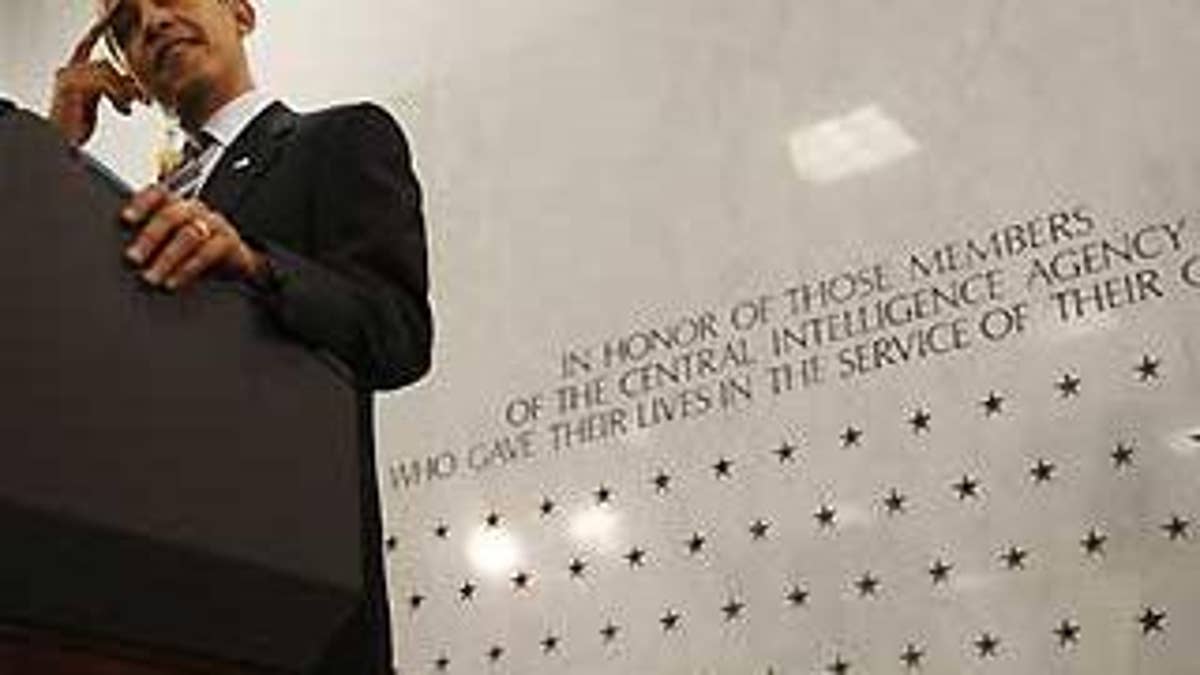
President Obama answered the call of the left Tuesday by opening the door for prosecution of the Bush administration lawyers who wrote the so-called "torture memos," which cleared the way for the CIA to use harsh interrogation methods when questioning suspected terrorists.
But that doesn't mean those attorneys will end up facing prison sentences any time soon.
Some legal analysts doubt the Obama administration and Attorney General Eric Holder have the stomach for taking on their predecessors. And others question whether the Justice Department would pursue a case that amounts to prosecuting a legal opinion.
"My prediction is you'll never see prosecutions," said Doug Burns, a former federal prosecutor. He said Obama was merely backpedaling Tuesday to blunt the political backlash he was facing from the left.
Though the president has said that CIA agents will not be charged for following legal guidelines for interrogations, some Democrats have pushed him to support prosecution of the lawyers who drafted the legal ground for such interrogations. Obama said Tuesday that he will defer to Holder on those potential charges.
But if Holder goes down that road, it will be unprecedented, legal analysts said.
"It would really be a very, very difficult case to make," said Bruce Fein, a constitutional lawyer and former official in the Justice Department's Office of Legal Policy.
Not impossible, though. Fein said the prosecutor in the case would have to prove that the Bush attorneys essentially fabricated the legal justification in their memos.
"You would have to show that the legal arguments were just totally concocted," he said. "It's a very, very narrow path."
He said the prosecutor could try to bring charges of aiding and abetting torture, or conspiracy, to do so.
But Fein, who said there is enough evidence to warrant an investigation into top Bush administration officials over the interrogations, questioned the logic of targeting lawyers who did not by themselves order any interrogations.
David Rivkin, an attorney and member of the Council on Foreign Relations who has argued that the memos prove the Bush administration did not torture, gave a similar opinion. He said the prosecution would have to prove the memos' authors acted as part of a conspiracy to authorize what they all knew to be torture. But Rivkin said that would make all the non-lawyers culpable too.
He predicted any prosecution against the memos' authors would fail.
"In our legal system you cannot prosecute lawyers for offering legal opinions, even if you disagree with them," he said. "There are no precedents for prosecuting government lawyers for giving legal advice, none whatsoever."
Senate Democrats praised Obama on Tuesday for leaving the door open to prosecutions.
"I don't think they should be given ... a sort of carte blanche, sort of reprieve for those who designed the policies, who supervised the policy," said Sen. Jack Reed, D-R.I., a top Democrat on the Armed Services Committee.
But Republicans slammed the administration for floating the possibility that lawyers could be punished for doing their jobs.
"Prosecute them for what?" said Sen. Jon Kyl, R-Ariz. "Last time I checked, as a lawyer, when you give legal advice to your client, you're not responsible for whether or not that advice is going to be disagreed with in some future administration. ... If we get to the point where a lawyer cannot give, even if later people believe it to be incorrect, legal advice, then no administration is going to be safe in the future."
Texas Rep. Lamar Smith, the top Republican on the House Judiciary Committee, also released a statement rejecting talk of punitive measures against the attorneys.
"If Congress gets into the habit of impeaching federal judges for legal advice provided while serving in the administration, no good lawyer in their right mind would join the administration," Smith said. "Even government lawyers must be free to provide legal advice and counsel without fear of retribution from politicians."
Smith rejected growing calls for the impeachment of one of the authors, Jay Bybee, who is now a federal judge.
"Mr. Bybee was asked to provide his legal -- not personal -- opinion regarding interrogation techniques. He should not now be punished for doing his job," Smith said.
The attorneys who wrote the memos, and who are the subject of an internal Justice Department ethics inquiry, are Bybee, John Yoo and Steven Bradbury.
FOXNews.com's Judson Berger and FOX News' Trish Turner contributed to this report.




